 Background
Background
After months during which the Irish media appeared to display little interest in the content of the State Department cables held by Wikileaks, The Irish Independent has finally initiated publication as part of a Wikileaks partnership. This is the first and hitherto only Wikileaks partnership in the Irish media. Today was Day One, and the coverage is projected to run for at least a week, although the Independent may choose to use its access to the cables for longer than this. Tomorrow's cables are to be on "What the US really thinks of [Irish] politicians." Investigative correspondent for the Independent, Shane Phelan, announced tonight on Vincent Browne Tonight that Thursday's reports will be on what the cables reveal about Ireland's banking crisis and recent economic troubles.
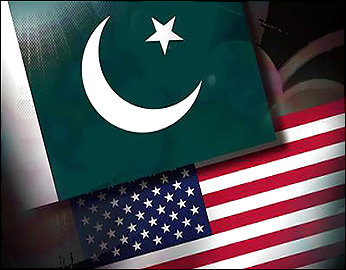 The Dawn Media Group in partnership with WikiLeaks has been releasing the "Pakistan Papers." Thus far, some of the revelations include the following: US was concerned that Pakistan would oppose its policies at the United Nations; US was worried Pakistan would purchase oil from Iran, allowing them to get a foothold in Pakistan; Pakistan's government was upset with US funding for the Pakistan military, which led to increased civil-military tensions; Pakistan's military asked for continued drone coverage; the US has had troops deployed on Pakistan soil; Saudi Arabia and the UAE have been financing jihadist groups in Pakistan and the US did not provide Benazir Bhutto with proper security.
The Dawn Media Group in partnership with WikiLeaks has been releasing the "Pakistan Papers." Thus far, some of the revelations include the following: US was concerned that Pakistan would oppose its policies at the United Nations; US was worried Pakistan would purchase oil from Iran, allowing them to get a foothold in Pakistan; Pakistan's government was upset with US funding for the Pakistan military, which led to increased civil-military tensions; Pakistan's military asked for continued drone coverage; the US has had troops deployed on Pakistan soil; Saudi Arabia and the UAE have been financing jihadist groups in Pakistan and the US did not provide Benazir Bhutto with proper security.
For this episode of "This Week in WikiLeaks," the show has part two of an interview that was done with Raza Rumi, a writer based in Lahore, Pakistan. Rumi regularly writes for the Pakistani weekly The Friday Times, The News and Daily DAWN on myriad topics such as history, arts, literature and society. Rumi has worked in Pakistan and abroad in various organizations including multilateral institutions such as the United Nations.
Rumi's writing can be read here.
[*Note: This is the second part of "This Week in WikiLeaks" for the week. You'll find part one, an interview with Kevin Zeese of the Bradley Manning Support Network on the one year anniversary of Manning's arrest here.]
To hear the show, click play on this embedded player.
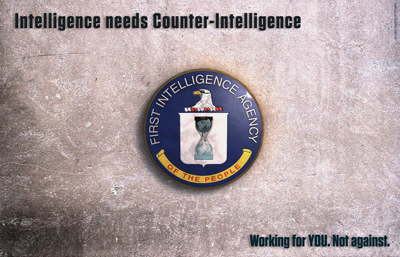
A new development in global law harmonization against the perpetual War on Everything is a new amended bill being passed through Australian Parliament, which will further fatten up ASIO’s capabilities to spy on Australians and anyone else abroad. Crikey reports on the bill’s proposed changes:
“Foreign intelligence” is redefined to relate to “intelligence about the capabilities, intentions or activities of people or organisations outside Australia”.
Under current legislation, it is limited to “intelligence relating to the capabilities, intentions or activities of a foreign power”. Similarly, the concept of a “foreign power” has been redefined — currently it applies to “a foreign government, an entity that is directed or controlled by a foreign government or governments, or a foreign political organisation”. Under the bill, it will become “people, organisations and governments outside Australia”.
That’s pretty damn broad.
Bascially, anyone who organises in groups to campaign about political and social issues, such as antiwar activists, environmental activists, refugee advocates, anti-censorship activists – anyone who communicates with others overseas to campaign against Australian government policy – will be able to be targeted by ASIO under these new laws.
Crikey suggests that groups without a specific political agenda, such as Wikileaks and online lulz masters Anonymous, may also be targets. By this logic, so could the Australian Pirate Party, which pits itself against hawkish and well-funded copyright lobby groups, and whose sister parties in Europe have been subject to civil lawsuits and police investigation.
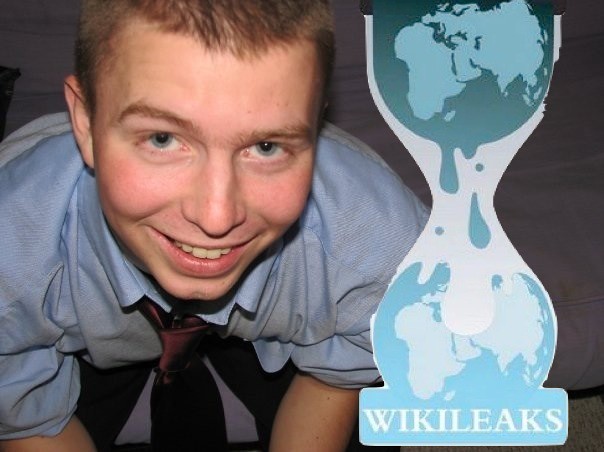 This week the program marks the one year anniversary of Bradley Manning's arrest. Joining the weekly podcast is Kevin Zeese, who is a member of the Bradley Manning Support Network Steering Committee.
This week the program marks the one year anniversary of Bradley Manning's arrest. Joining the weekly podcast is Kevin Zeese, who is a member of the Bradley Manning Support Network Steering Committee.
In the past week, there were two documentaries (or films) that went public, which portrayed Bradley Manning. One was the PBS FRONTLINE documentary (which I had much to say about and even went on RT's "The Alyona Show" to discuss). Another was an investigative short film put together by The Guardian. Zeese addresses both of those.
We also discuss how the Bradley Manning case fits into the general war on whistleblowing that the Obama Administration appears to be waging.
This is Part 1. A Part 2 will be posted soon and features more discussion from Pakistan blogger Raza Rumi on the Pakistan Papers.
To listen to the show, click play on the embedded player below. Or, go to CMN News and click "download" or "listen." It will appear at the top of the page or in the list.
PARTIAL TRANSCRIPT ---
 In the wake of Obama's visit, the Irish government has abandoned its plans to discontinue U.S military stopovers in Shannon airport.
In the wake of Obama's visit, the Irish government has abandoned its plans to discontinue U.S military stopovers in Shannon airport.
The accepted narrative about President Obama's "historic" visit to Ireland on Monday was that it was entirely symbolic, and more to do with seeking the Irish American vote in Obama's reelection bid than with any substantive diplomatic goals. Among other ceremonial activities, the president and the first lady made a flying visit to the village of his Irish ancestors in County Offaly, and were photographed drinking Guinness in a local pub.
The visit was universally judged a success by an ecstatic Irish broadcast media, which ran all day an assortment of panegyrics from the national punditry, while scrutinizing with interest every frame of fresh footage. The president was greeted by a deferent Irish political elite, no doubt desparate to leverage the event to avert some of Ireland's fraught economic prospects.
In a speech to well over 100,000 assembled Irish people in College Green, Dublin, Obama spoke rousingly - and with an eloquence to which, in a political speaker, Irish ears are unaccustomed - of the ties of blood and destiny between Ireland and America, of hope, and of dreams, and of other vague exotica.
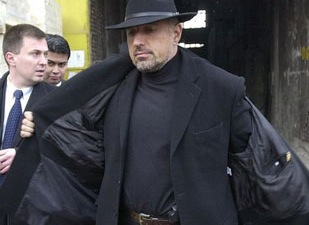
Bulgarian PM Boyko Borisov refuted yesterday the Wikileaks revelations about his past ties to organized crime, metamphetamines traffic and his dependence from a shady businessman from Lukoil.
"I don't read Wikileaks" - he said before the media in The Hague, Netherlands, on 26th of May, where he opened the 7-th international meeting of Bulgarian media, organized by the Bulgarian news agency BTA.
Asked by journalists about his comment on the cable content, published by the Bulgarian web site Bivol.bg, the local Wikileaks partner, Borisov acknowledged he phoned the US Ambassador James Warlick, who said that the Wikileaks publications are "based on unconfirmed sources and it was futile to comment on them".
"As far as I know, they have not published anything positive about anybody yet. They also cite tabloids publications and comments of various political parties," Borisov said. "I don't read tabloids" - he concluded.
Later the same day, the US Embassy published a statement saying that "It is important to keep in mind that diplomatic cables are often preliminary and incomplete analyses of international affairs, and should not be seen as official representations of U.S. foreign policy"
US Ambassador to Sofia, Jonh Beyrle wrote the said cable on Borissov on May 9, 2006. The report’s confidentiality level is listed as SECRET/NOTFOR (NOT FOR FOREIGNERS), only one level below the highest TOP SECRET level, not available to Wikileaks.
The cable is one of the few from a total of 978 reports sent from Sofia, that have been checked and approved simultaneously by the Embassy’s political, military and security advisors, not just Ambassador Beyrle.
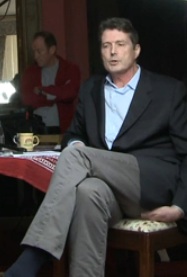 Producer Marcela Gaviria and producer/correspondent Martin Smith, who both worked on the FRONTLINE "WikiSecrets" documentary that aired last night, and Brian Manning, Bradley Manning’s father, participated in an online PBS chat that offered people an opportunity to ask questions and make comments about the film.
Producer Marcela Gaviria and producer/correspondent Martin Smith, who both worked on the FRONTLINE "WikiSecrets" documentary that aired last night, and Brian Manning, Bradley Manning’s father, participated in an online PBS chat that offered people an opportunity to ask questions and make comments about the film.
Gaviria/Smith suggest the prosecution in the Manning case is “quite strong” and investigators have “matched Manning’s computer to [computer hacker Adrian] Lamo’s, verifying the authenticity of the chats.” Gaviria/Smith add, “To be acquitted Manning’s lawyer would somehow have to prove that Manning had been framed and his computer had been tampered with.”
This focus on Lamo overlooks a key legal dilemma that has risen as a result of President Barack Obama declaring at a fundraiser that Manning “broke the law.” That's the issue of “unlawful command influence."
Whether Manning could have a fair trial now that the Commander-in-Chief has told his subordinates he thinks Manning is guilty is doubtful. A military officer would be risking his career if he or she handed down a decision that did not meet the approval of the Obama Administration. Gaviria/Smith are seemingly oblivious to this when they type their answer.
Asked why the documentary overplayed Manning’s homosexuality, Gaviria/Smith explain, “Manning’s homosexuality is not relevant. What is relevant was his struggle with the Army’s Don’t Ask/Don’t Tell policy. It eroded his respect for Army authority and led to disillusionment with Army life. It’s not that he was gay, it was that he was discriminated for being gay.”
Borissov described himself as "Bulgaria's biggest asset"
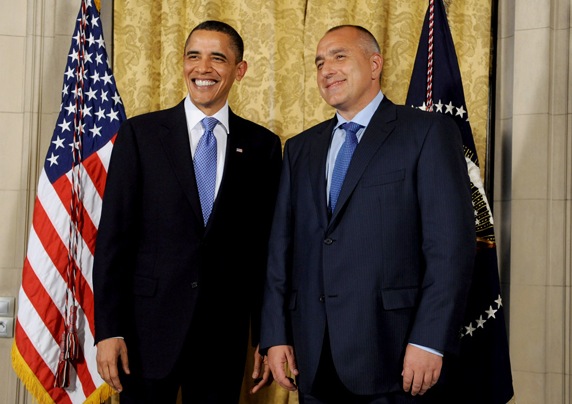
"We must continue to walk a fine line between being used by Borisov's publicity machine and alienating an exceptionally popular and seemingly pro-American politician who may emerge as Bulgaria's next leader. In other words, we should continue to push him in the right direction, but never forget who we're dealing with."
This is the conclusion of a diplomatic report dedicated to now Bulgarian Prime Minister, Boyko Borisov, sent by former US Ambassador to Sofia, Jonh Beyrle on May 9, 2006. The report’s confidentiality level is listed as SECRET/NOT FOR FOREIGNERS, only one level below the highest TOP SECRET – cables classified as TOP SECRET are not available to Wikileaks.
The reasons for classifying the report are coded as 1.5 (b,d), meaning confidential sources have been used in its preparation.
The cable has another characteristic – from a total of 978 reports sent from Sofia, there are just a few that have been checked and approved simultaneously by the Embassy’s political, military and security advisors, not just Ambassador Beyrle.
"The Dirt"
This is how Beyrle titled the section focusing on Boyko Borisov’s criminal past. Incidentally, the paragraph has the "lucky" number 13, while in the brackets, after 13, the level of confidentiality is purposely listed as SECRET/NOFOR, which corresponds to the highest level of classified information for this cable.

 Anyone familiar with the stories of WikiLeaks, Julian Assange, the organization’s founder and Pfc. Bradley Manning, the alleged whistleblower to WikiLeaks, would be forgiven for wondering whether PBS Frontline’s documentary “WikiSecrets” presents anything new or not. The documentary attempts to make a sensational connection between Manning and Assange and suggest that Assange might know Manning is the source of the information.
Anyone familiar with the stories of WikiLeaks, Julian Assange, the organization’s founder and Pfc. Bradley Manning, the alleged whistleblower to WikiLeaks, would be forgiven for wondering whether PBS Frontline’s documentary “WikiSecrets” presents anything new or not. The documentary attempts to make a sensational connection between Manning and Assange and suggest that Assange might know Manning is the source of the information.
The Story
PBS FRONTLINE documentaries are typically straightforward. Thus, the opening montage provides a good idea of what the main points of the documentary will be: it’s hard to tell if Manning approached Assange or whether Assange approached Manning, WikiLeaks had feared one of its “sources” would be exposed, the chat logs suggest Manning knows Assange (but Assange denies that) and WikiLeaks is an anti-secrecy organization that doesn’t believe in secrets, which is why over half a million documents were leaked.
In the first act, FRONTLINE attempts to psychoanalyze Manning and make a determination on his mental health. Sordid details are presented leading one to understand that Manning found himself to be smarter than most of the other soldiers in the military. He was gay and had no respect for “Don’t Ask, Don’t Tell.” He was using Facebook in a way that put him at risk. He was incapable of keeping a steady job. He was a vocal person and had little respect for his commanding officers. And, an army supervisor did not find him to be fit to go to Iraq.
Wikileaks has just released the full video of their interview with PBS which will be used as source material in a documentary airing tonight.
From Wikileaks:
On 24 May, 2011, 9pm EST, PBS-Frontline will air a documentary "WikiSecrets". WikiLeaks has had intelligence for some time that the program is hostile and misrepresents WikiLeaks’ views and tries to build an "espionage" case against its founder, Julian Assange, and also the young soldier, Bradley Manning.
In accordance with our tradition of "scientific journalism" (full primary sources) we release here our, behind the scenes, interview tape between Julian Assange & PBS Frontline’s Martin Smith which was recorded on 4/4/2011. In the tape, Assange scolds Martin Smith for his previous coverage of Bradley Manning and addresses a number of issues surrounding the 1917 Espionage Act investigation into WikiLeaks and Bradley Manning.
The Frontline documentary will include footage of a number of individuals who have a collective, and very dirty personal vendetta, against the organization. These include David Leigh, Adrian Lamo, Daniel Domscheit-Berg, Eric Schmitt and Kim Zetter. While the program filmed other sources, such as Vaughan Smith who provided a counter-narrative, these more credible voices have been excluded from the program presented to the US public.
"WikiSecrects" Julian Assange Full Interview Footage 04/04/2011 from Winston Burrows on Vimeo.
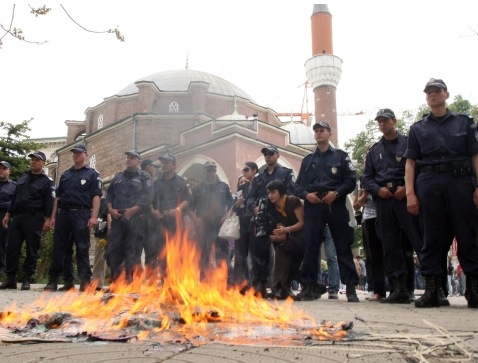
Bulgaria held European elections in June 2009, followed by the national parliament elections in July. The main political players are analysed by the american ambassador in Sofia Nancy McEldowney in two cables sent to Washington DC and reported by the investigative journalism site Bivol, a local partner of Wikileaks. [09SOFIA301] [09SOFIA264]
The cables give a rough picture of a political landscape plagued by corruption, shady businessmen, vote buying and accused criminals running for MP.
Bulgarian media stressed the direct translation of the title "Garbage in, Garbage out", adding that not all of the Bulgarian MPs deserve to be named "garbage", but many of them are looking after their private interests first, through heavy lobbying. "Now, it's up to them to reject this qualification. With a radical change" - popular daily "Troud" wrote in an OpEd.
English language site Novinite stressed the comparison of Ataka (Attack) party and the ethnic Turkish Movement for Rights and Freedoms. They are each other's "best enemies", according to the cable.
"Local analysts say Ataka and MRF need each other to frighten their constituents into voting." the cable says.
Currently, Ataka is the ruling centrist-right GERB's only parliamentary ally.
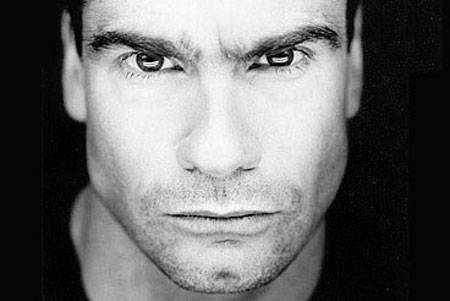 Henry Rollins interview by Maximus D. Estevez and Jonathan "Toth" Getzschman: full text available here. Submitted by Jonathan "Toth" Getzschman.
Henry Rollins interview by Maximus D. Estevez and Jonathan "Toth" Getzschman: full text available here. Submitted by Jonathan "Toth" Getzschman.
"I don’t go to CNN for news like I don’t go to a Burger King for a meal."
Max: In America's search for transparency, new organizations have been formed, such as Wikileaks. America is torn on that specific issue. Some view it as treason. Others view it as patriotism. What is your take on the subject?
Henry: If WikiLeaks is treason, then so was the outing of CIA agent Valerie Plame [VP Dick Cheney called her and her husband "Fair Game" after they proved and announced to the media that Bush was lying about Saddam Hussein's WMD's] and let’s get everyone into court and get it going. If America has so many things that we are not supposed to know about, perhaps it’s time to change the way we do things. The way America conducts itself at this point only seems to lead to new conflicts. If America didn’t go to Iraq, there would be no deficit. Since the American media has been bought and paid for, some people need alternate sources to get their information.
I don’t go to CNN for news like I don’t go to a Burger King for a meal.
Max: In a time when many American's are wanting more transparency in government and to get their voices heard, what do you see as the most honorable and expedient way to get the government to listen to the will of the people?
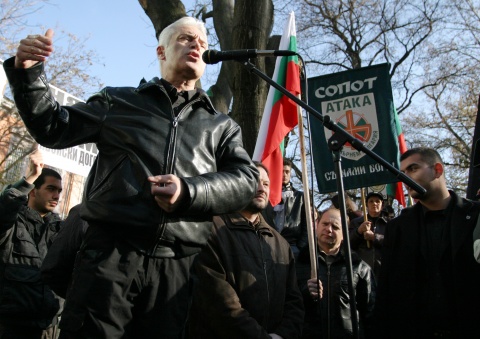
Diplomatic cables of the US embassy in Sofia have been revealed on WikiLeaks and provided to the project for investigative journalism www.bivol.bg, bringing out new details about the way Bulgaria's far-right, nationalist Ataka party and its leader, Volen Siderov, are viewed by American diplomats.
The text in English has also been published at the Balkanleaks site, an analogue of the notorious whistle-blowing WikiLeaks.
The first available cable on the subject has been sent on July 12, 2005, by then US Ambassador to Sofia, James Pardew, after it became known Ataka had secured seats in the Parliament as result of the general elections. In the cable, titled BULGARIA: EXTREME NATIONALIST PARTY ENTERS PARLIAMENT, the diplomat writes about the policies of Ataka and Siderov, seen by him as xenophobic and anti-semitic, points out Ataka's parliamentary group includes a significant number of former military and police officials, gives a summary of Siderov's biography and work as journalist, talks about other key figures in the party and and notes undisclosed sources have informed him the nationalists might have received funding from Overgaz Chief Sasho Donchev and Nove Holding owner Vassil Bozhkov aka The Scull.
In a cable, dated October 17, 2005, titled PROGRESS ON U.S. MILITARY ACCESS, BUT TOUGH ISSUES REMAIN, the then Charge d'Affaires of the US Embassy Jeffrey D. Levine points out the nationalists lead an anti-American campaign regarding US military bases.
 New US International Cybersecurity Strategy Aims to Institute 'Rule of Law' on the Internet
New US International Cybersecurity Strategy Aims to Institute 'Rule of Law' on the Internet
The United States officially launched its international cyber security strategy in a White House event on Monday, May 16. Secretary of State Hillary Clinton joined by the following administration officials: John Brennan, the president's counterterrorism and homeland security adviser; Howard Schmidt, White House cybersecurity coordinator; Attorney General Eric Holder; Secretaries Janet Napolitano of Homeland Security and Gary Locke of Commerce; and Defense Deputy Secretary William Lynn.
The presentation of the cyber security presented several principles, outlined the approach the US intends to take in the further development of cyber security protections, and indicated how the US might use the Internet to preserve its status as a superpower in the world.
Featured during the presentation were seven principles, which appear in the framework: economic engagement, protecting networks, law enforcement, military cooperation, multi-stakeholder Internet governance, international development and Internet freedom. Within the presentation, Clinton sought to explain that cyber crime, Internet freedom and network security could no longer be “disparate stovepipe discussions.”
At no time during the launch of the strategy was WikiLeaks mentioned. Not even Clinton bothered to mention it, despite the fact that she heads a State Department that had their department’s classified information leaked and published by media organizations and continue to have new information published each day.
 For the past four or five days, a copy of a leaked confidentiality agreement from WikiLeaks has been a hot topic among those who follow news and politics. Those that have regularly scrutinized WikiLeaks, who have typically gone along with any meme in the media that shines a light on the organization’s imperfections, took the posting of this agreement as an opportunity to focus on how this showed complete hypocrisy. Those sympathetic and supportive, on the other hand, saw this as a moment when they needed to get out in front and defend the organization.
For the past four or five days, a copy of a leaked confidentiality agreement from WikiLeaks has been a hot topic among those who follow news and politics. Those that have regularly scrutinized WikiLeaks, who have typically gone along with any meme in the media that shines a light on the organization’s imperfections, took the posting of this agreement as an opportunity to focus on how this showed complete hypocrisy. Those sympathetic and supportive, on the other hand, saw this as a moment when they needed to get out in front and defend the organization.
I was one of those people who found the renewed push to further de-legitimize WikiLeaks concerning. I posted an analysis of the confidentiality agreement and later posted a comprehensive and thought-out critique of David Allen Green's work on WikiLeaks. (Green is the blogger for the New Statesman, who helped make the agreement a big story.)
As the story was breaking, I received a Twitter message, “WikiLeaks Threatens Its Own Leakers With $20 Million Penalty" http://bit.ly/klgAnz What says @kgosztola?” The message came from Roni Weiss, a personality on a podcast show called “Don’t Worry About the Government.” I told him he should have me on his program to share my opinion.
On Facebook, we went back and forth on the “Don’t Worry About the Government” show page as I tried to get him to do a segment with me. He stated his position, “My biggest concern is that I just don't have much to say about it…My stance is basically: This looks bad for them, publicity-wise, and beyond that, I don't really care, because they do a lot of things that look bad.
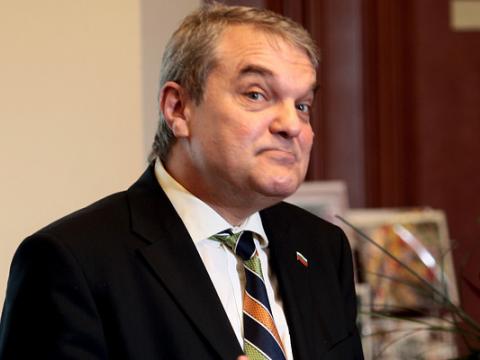
Former Interior Minister of Bulgaria (2005-2008), Rumen Petkov is presented as a "hard working, hard drinking", controversial figure, related to political corruption and russian intelligence in a WikiLeaks diplomatic cable released by the Wikileaks partner Bivol.bg also published on balkanleaks.eu
Before his appointment as a Minister, Petkov was the mayor of the central Bulgarian city of Pleven where he was "dogged by scandals, some serious and some -- like his late night arrest for urinating in a public fountain --simply illustrative of his unpolished style" - wrote the American ambassador in Sofia.
Rumen Petkov became one of the most influential personalities in the Bulgarian government under PM Stanishev (2005-2009).
His past associations with controversial figures may make it difficult for him to move against certain Organized Crime interests - the Ambassador John Bayrle reported. He also believes Petkov has "long been publicly associated with Russians who are either directly or indirectly affiliated with Russian intelligence,"
While Petkov was a Minister "The five largest organized crime groups in Bulgaria (TIM, VIS, SIC, Nove Holding, and Multigroup) ... generally operated with impunity," Bayrle stated.
Petkov resigned in April 2008 after a huge political scandal following the revelation that he met with The Galevi Brothers, alleged drug lords. Despite the strong evidence that Petkov protected alleged criminals and shady alcool business from justice, Petkov was never investigated by the prosecutor office.
Authored by Mike Soron.
Discussing a draft declaration from South American and Arab State leaders, a United States government operative lists a series of “anti-American digs” against the US and Israel that were later excluded from the text.
What is considered anti-American is stunning and revealing. This quiet, unassuming cable shows a bizarre and expansive US foreign policy agenda in 2005.
Among statements considered to be anti-American:
The cable also described aspirations for a nuclear weapons-free Middle East as “anti-Israeli sentiment”.
An unusually clear window into a USG operatives’s worldview at the time.
—
Michael Geist of the University of Ottawa is covering the Wikileaks cables as they relate to Canadian intellectual property and internet law. Do follow.
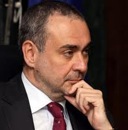
Bivol.bg (partial translation)
Bulgarian Chief Prosecutor, Boris Velchev, has painted an apocalyptic picture of the state of the prosecution services in the country at a meeting with American Ambassador, John Beyrle, held soon after Velchev’s election to the post. This has been revealed in a cable written by Beyrle, dated February 7, 2006, and leaked by Wikileaks [06SOFIA198].
The prosecutor’s office under the leadership of Velchev’s predecessor, Nikola Vilchev, was described by the new Chief Prosecutor as "some kind of terrorist organization" used to settle political and business scores, but totally incapable of fighting crime.
Empty files and hostile deputies, who did not even want to talk to him, is what Velchev stumbled upon at the prosecution services. He had described his priority of cleansing the institution from corrupt prosecutors as "some kind of a war".
Velchev’s “war,” however, has implications beyond the borders of Bulgaria – it must lead to effective guilty verdicts of organized crime bosses, one of the top requirements of the EU, monitoring Bulgaria before its accession to the Union.
Facing the outrageous failure of Bulgarian prosecutors and law enforcement to collect sound evidence against the leaders of organized crime, the Chief Prosecutor declares, according to Bayrle, his equally outrageous plan to seek “a contract with the Courts.” Ambassador Beyrle explains this means appealing to judges to sentence criminal bosses “based on evidence that otherwise might not pass muster“.
 A leaked confidentiality agreement that those doing “business” with WikiLeaks are expected to sign was obtained and published by the New Statesman. The New Statesman and other news organizations believe they have uncovered another aspect of the WikiLeaks organization that indicates it is unfit to be trusted by whistleblowers. But, for anyone who understands confidentiality agreements there may be nothing extraordinary or even draconian about the agreement.
A leaked confidentiality agreement that those doing “business” with WikiLeaks are expected to sign was obtained and published by the New Statesman. The New Statesman and other news organizations believe they have uncovered another aspect of the WikiLeaks organization that indicates it is unfit to be trusted by whistleblowers. But, for anyone who understands confidentiality agreements there may be nothing extraordinary or even draconian about the agreement.
A confidentiality agreement is essentially a non-disclosure agreement. Included are details noting the “owner of the information,” the “receiver of the information,” a definition of what it considers to be “information,” why the agreement is necessary, what information is covered by the agreement, a definition of the permitted use of the information, any exceptions to the agreement, and penalties that could be imposed if the agreement is breached.
What news organizations seem to be taking issue with, rather ridiculously, is the word “owner" and the idea that WikiLeaks might be marketing this information to media organizations.
The New Statesman and others consider the use of the word "owner" to be proof that the organization finds it has “commercial ownership over the information that has been leaked to it.” But, the word “owner” is the term that is used in these agreements. It is standard and may not be proof the organization sees itself as literally owning the information.
Clause by clause:
“A” stipulates the information that it finds to be covered by the agreement is defined.
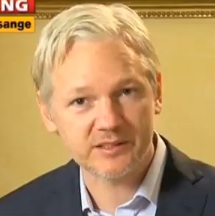 A federal grand jury is meeting at 11 am EST in Alexandria, Virginia. The grand jury is being employed to “build” a case against Julian Assange, the WikiLeaks founder who just won a gold medal for peace and justice from the Sydney Peace Foundation.
A federal grand jury is meeting at 11 am EST in Alexandria, Virginia. The grand jury is being employed to “build” a case against Julian Assange, the WikiLeaks founder who just won a gold medal for peace and justice from the Sydney Peace Foundation.
“The WikiLeaks case is part of a much broader campaign by the Obama administration to crack down on leakers,” writes Carrie Johnson of NPR. Johnson is one of a few reporters in the US press who has published a report today on this stirring development in the United States. She finds “national security experts” cannot “remember a time when the Justice Department has pursued so many criminal cases based on leaks of government secrets.”
The number of people subpoenaed to appear before the grand jury is unclear (and not in any of the few news articles published on the grand jury so far). What is known is that at least one individual from Cambridge was issued a subpoena seeking to compel him to testify before a Grand Jury. Glenn Greenwald of Salon.com reported the individual served had a public link to the WikiLeaks case and it was “highly likely” the subpoena was connected to the WikiLeaks Grand Jury investigation.
There are two other federal Grand Juries that are ongoing in the country. In San Jose, California, a Grand Jury has been empanelled to investigate the “hacktivist” group, Anonymous. Another Grand Jury in Chicago has been empanelled to target antiwar, labor and international solidarity activists for their political action.
Theme by Danetsoft and Danang Probo Sayekti inspired by Maksimer